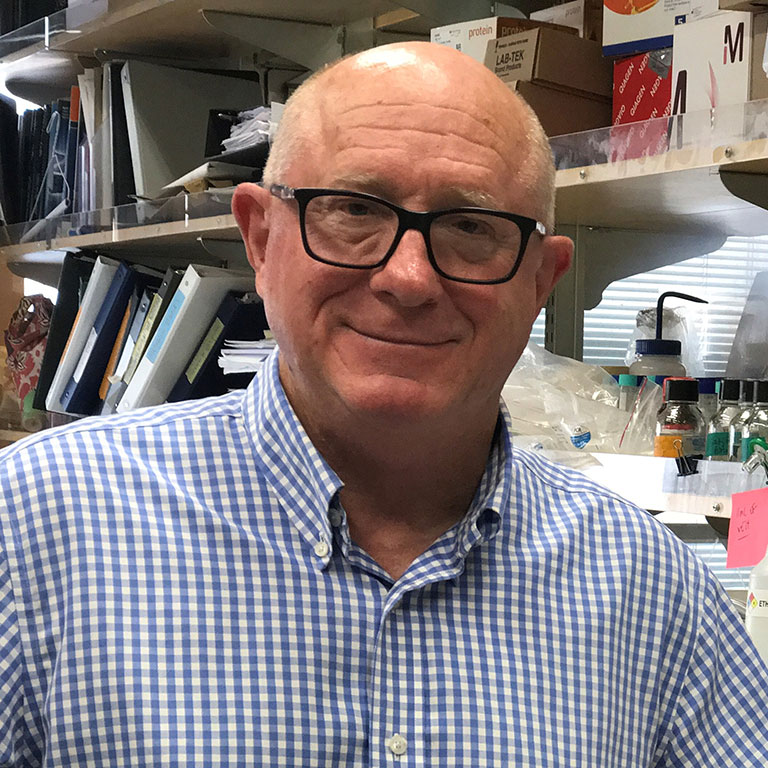He earned a zoology degree from the University of California Davis. Then Shepard completed a Ph.D. in molecular, cellular, and developmental biology from the IU College of Arts and Sciences' Department of Biology. He would go on to develop the groundbreaking cancer drug Herceptin, which targets and slows the proliferation of tumor cells in patients with HER2-positive breast cancer.
“It was building a great big old thing out of a little flatworm,” he recalls.
In part, Shepard credits mentors such as IU Professor Emeritus George Malacinski, the late Dr. Rudolf Raff, and Research Professor Emeritus Robert W. Briggs with shaping his career. “In the '70s, the biology department was just booming,” Shepard says.
During Shepard's time there, Briggs chaired the department.
“Robert Briggs was the first person to show that you could take a nucleus from one animal and put it into the egg of another one and then get a whole new animal,” Shepard notes.
Eventually, Dr. Barry Polisky joined the department and also greatly influenced Shepard.
“Barry brought all this stuff from UC San Francisco — recombinant DNA stuff that he'd picked up,” Shepard says. “He was actually one of the first people in the field ... [His project] had to do with the regulation of DNA replication.”
Shepard began focusing on germ cell tumors.
“It can develop either early-stage eggs or sperm and it could form an embryo all on its own,” he says. “It didn't need to be fertilized. It's just that something went wrong with this germ cell.”
Armed with substantial expertise in gene manipulation, Shepard joined the biotechnology firm, Genentech, in 1980.
“When I first got there, it was all gene cloning,” he says. “Then one day, I was working on some collaborations with some university people, and I was reading about how brain cancer is treated, and what I found out there ... was just terrible.”
Shepard set out to create a cancer therapy that would harm tumors — not patients. “That meant bringing together every aspect of biology, molecular biology, developmental biology — everything that I knew,” he says.
His vision became reality with the creation of Herceptin, the first monoclonal antibody that blocks a cancer-causing protein, which is used as a life-saving therapy for breast cancer patients. Shepard was recognized for the discovery, along with his co-inventors, in 2019 with a Lasker ~ DeBakey Clinical Medical Research Award.
He's still challenging himself today. He and Oxford University's Marc Feldmann are exploring similarities between solid tumors and autoimmune diseases like rheumatoid arthritis. Shepard says, “We're working on this new company which is bringing both fields together to create new drugs that will address needs in both diseases.”
Looking back, he adds, “I couldn't have done any of this, if it weren't for opportunities — especially the opportunity that George Malacinski gave me — to come and work at IU Bloomington.”



